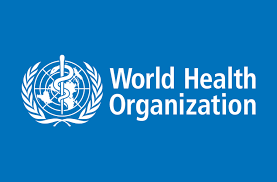LONDON – The World Health Organization's cancer agency dismissed and edited findings from a draft of its review of the weedkiller glyphosate that were at odds with its final conclusion that the chemical probably causes cancer.
Documents seen by Reuters show how a draft of a key section of the International Agency for Research on Cancer's (IARC) assessment of glyphosate – a report that has prompted international disputes and multi-million-dollar lawsuits – underwent significant changes and deletions before the report was finalised and made public.
IARC, based in Lyon, France, wields huge influence as a semi-autonomous unit of the WHO, the United Nations health agency. It issued a report on its assessment of glyphosate – a key ingredient in Monsanto Corp's top-selling weedkiller RoundUp – in March 2015. It ranked glyphosate a Group 2a carcinogen, a substance that probably causes cancer in people.
That conclusion was based on its experts’ view that there was “sufficient evidence” glyphosate causes cancer in animals and “limited evidence” it can do so in humans. The Group 2a classification has prompted mass litigation in the United States against Monsanto and could lead to a ban on glyphosate sales across the European Union from the start of next year.
The edits identified by Reuters occurred in the chapter of IARC’s review focusing on animal studies. This chapter was important in IARC’s assessment of glyphosate, since it was in animal studies that IARC decided there was “sufficient” evidence of carcinogenicity.
One effect of the changes to the draft, reviewed by Reuters in a comparison with the published report, was the removal of multiple scientists' conclusions that their studies had found no link between glyphosate and cancer in laboratory animals.
In one instance, a fresh statistical analysis was inserted – effectively reversing the original finding of a study being reviewed by IARC.
In another, a sentence in the draft referenced a pathology report ordered by experts at the U.S. Environmental Protection Agency. It noted the report “firmly” and “unanimously” agreed that the “compound” – glyphosate – had not caused abnormal growths in the mice being studied. In the final published IARC monograph, this sentence had been deleted.
Reuters found 10 significant changes that were made between the draft chapter on animal studies and the published version of IARC’s glyphosate assessment. In each case, a negative conclusion about glyphosate leading to tumours was either deleted or replaced with a neutral or positive one. Reuters was unable to determine who made the changes.
IARC did not respond to questions about the alterations. It said the draft was “confidential” and “deliberative in nature.” After Reuters asked about the changes, the agency posted a statement on its website advising the scientists who participate in its working groups “not to feel pressured to discuss their deliberations” outside the confines of IARC.
Reuters contacted 16 scientists who served in the IARC expert working group that conducted the weedkiller review to ask them about the edits and deletions. Most did not respond; five said they could not answer questions about the draft; none was willing or able to say who made the changes, or why or when they were made.
The chairman of the IARC sub-group tasked with reviewing evidence of glyphosate’s effect on laboratory animals was Charles Jameson, an American toxicologist. In testimony as part of personal-injury lawsuits against Monsanto in the United States, Jameson told lawyers for Monsanto he did not know when, why or by whom the edits had been made.
Monsanto is facing multiple legal claims in the U.S. from plaintiffs who allege glyphosate gave them or their loved ones cancer. Jameson is an expert witness for the plaintiffs. He did not respond to questions for this article.
Scott Partridge, Monsanto’s vice president of global strategy, told Reuters the changes to the draft showed how “IARC members manipulated and distorted scientific data” in their glyphosate assessment.
IARC declined to comment.
Source: Reuters


